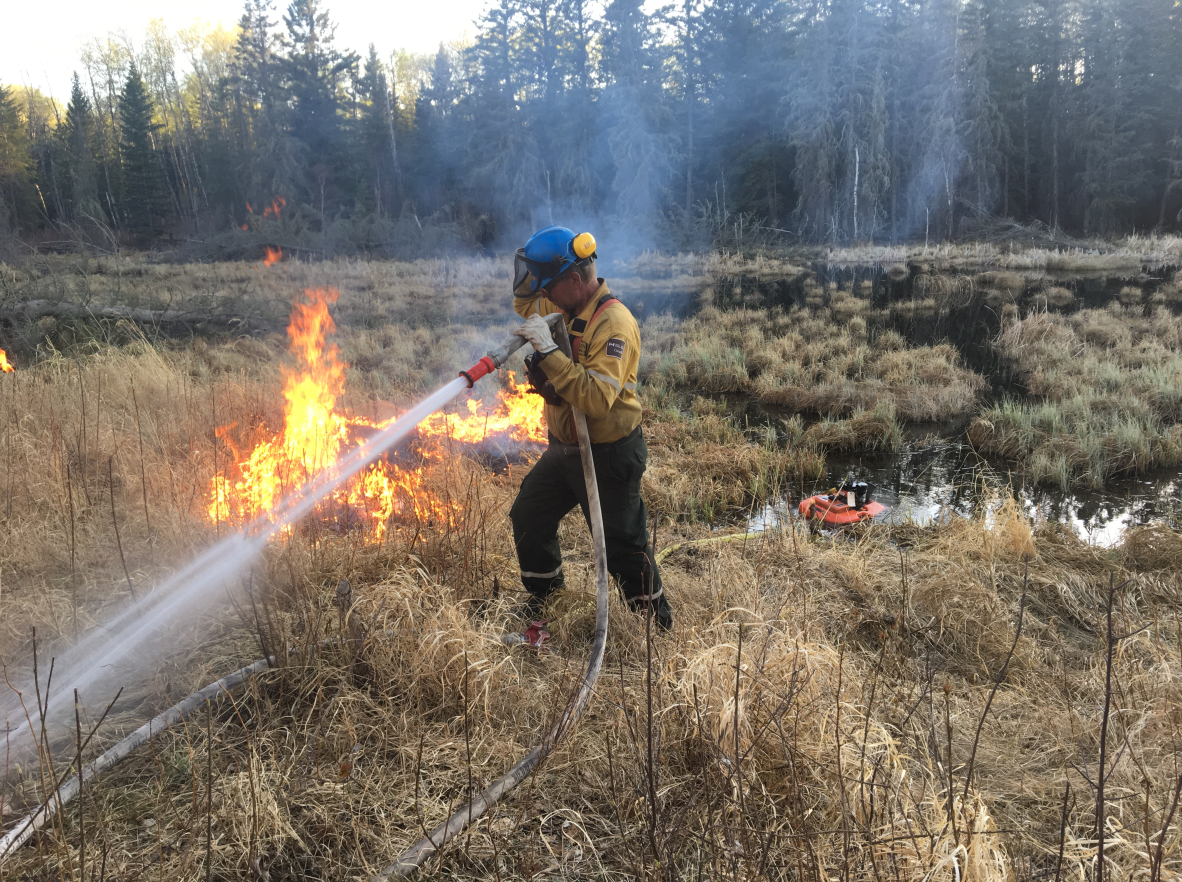Cooler temperatures and overcast skies may be providing relief to crews battling wildfires in Saskatchewan, but the province remains on high alert.

“We’re still under a high-level of alert in terms of residents and those impacts,” Duane McKay, the province’s commissioner of emergency management, said at a press conference on Thursday while giving an update on wildfire situation in Saskatchewan.
McKay said there are three wildfires of particular concern: the Tuff fire near Waterhen Lake First Nation, the Rally fire in the Holbein area and its impact on Crutwell, west of Prince Albert, and the Rabbit fire, which came out of Prince Albert National Park and is impacting the northern parts of Canwood and Shellbrook.
“There are some evacuation advisories that are still in place in Crutwell, but we’re working closely with the RM there to ensure that people have a place to go and that we’re ready to support them whenever possible.”
“Obviously over the last few days, we’ve been working very closely with municipalities to deal with wildfires in the north.”
Although conditions remain dry, McKay said overcast skies are assisting significantly with the activities of bringing the wildfires under control.
“Because of the cooler weather, I think we’re making some progress. We are evaluating now and throughout the day, and tomorrow, if there’s any possibility of getting people back into their homes – that’s our priority right now,” said McKay.
Waterhen Lake First Nation was evacuated on Tuesday over an access threat to the one road leading in and out of the community.
McKay said evacuations are monitored and re-evaluated on a daily basis and meetings are held every morning to bring information together and co-ordinate all activities.
“Then from there, we make sure that the information goes out to local officials so that they can make those decisions.”
Temperatures are expected to rise over the long weekend. While the warmer weather may be great for camping and outdoor activities, it brings a greater risk for people in the emergency management business and wildfire business,.
“There are fire bans in place here across the province. We want people to adhere to those and to be, in all ways, conscious about the fire risk,” McKay said.
“It may be inconvenient that you can’t sit around the campfire, but the inconvenience that an unattended fire that causes what we’ve seen in the last few days can be very significant and very dangerous.”
McKay said they learned a lot in 2015 when wildfires caused some of the biggest evacuation efforts in the province’s history.
“Certainly, we have learned a lot from 2015 in terms of not just the wildfire, but working more closely with municipalities – both at the elected official level to ensure that the individuals that are impacted have control over those decisions that are made affecting their community, but also working very closely with municipalities to ensure that not only do we have a good provincial response but that we are in a supportive role as well with municipal services,” McKay said.
“Over the last seven years, we’ve made significant investments in the radio systems, so just having everyone talk on the radio system and coordinating the unified command posts that are established really helps to make those responses very effective.”




Comments